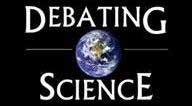| Posted: February 22, 2007 |
Online course on ethical dimensions of nanotechnology |
|
(Nanowerk News) Chemist Cathy Murphy (University of South Carolina) and environmental philosopher/ethicist Christopher Preston (University of Montana) are offering an on-line course on ethical dimensions of nanotechnology. It is addressed primarily at students in natural science and engineering program.
|
 |
|
The huge public and private investments in nanotechnology over the last decade reflect enormous scientific enthusiasm over this emerging research area. Nanotechnology holds promise in fields as diverse as materials engineering, medicine, information technology, defense, environmental remediation, energy production, and agricultural technology. Alongside the promises hover a range of social and ethical concerns. These include questions of toxicity, privacy, economic injustice, terrorism, cyborgian post-humanism, and compromised environmental integrity.
|
|
Traditionally there has been little formal effort through coursework to bridge the gap between scientific research and social debates about the ethical implications of technological innovations. Specialists are generally more comfortable staying within their area of expertise. But in the case of nanotechnology, the economic forces driving research are so strong and the public’s lack of knowledge about the technology is so great that scientists will have to cross the gap between scientific discourse and public debate. Prospective nanotech researchers need to become productive participants in the arena of ethical deliberation.
|
|
Course objectives and outcomes
|
|
The first expected learning outcome of this course is for students to become better informed about the many scientific, ethical, social and political issues arising from the development of nanotechnology. For example, what is the current state of development of nanotechnologies? How does the current reality measure up to the promises being made by its most enthusiastic backers? What kind of social impacts will nanotechnology have? What will be its impact on the global economy? How will these benefits be shared among developed and developing countries? What types of nanotechnological development pose the greatest threats to environmental and biological health? Which developments pose the greatest threat to global political stability? What types of political institutions might nanotechnology change?
|
|
Consequently, the second learning outcome is for students to become adept at engaging in informed, deliberative dialogue on these important issues arising from this new technology. Finally, the third learning outcome is for students to develop the relevant skills of reasoning to arrive at appropriate policy conclusions concerning the development of nanotechnology.
|
|
Course structure
This course is structured around a particular model of practical reasoning/deliberative dialogue. Practical reasoning/deliberative dialogue is concerned with making real-life decisions about setting and prioritizing goals and selecting the appropriate means to achieve these goals.
|
|
There are 5 areas to be considered in this model: (1) Articulating, establishing and prioritizing goals, (2) Identifying the available alternatives and research programs for achieving these goals, (3) Anticipating and evaluating unwanted side effects that might undermine the pursuit these goals via the various alternatives, (4) Identifying and evaluating major obstacles that might prevent reaching these goals via the various alternatives, (5) Establishing the burden of proof, weighing the presumptive case for each of the alternatives, and coming to a conclusion about policy. In sum, students in this course will be learning how to deliberate together to settle on the right goals to pursue, weighing the various option for achieving these goals, and arriving at the right (moral) and best (most effective and efficient) course of action. Students will spend the last part of the course collaborating on a policy document representing their conclusions about the development of nanotechnologies.
|
|
Course outline
|
|
I. The promise and purpose of nanotechnologies
|
|
II. The current and prospective scientific reality
|
|
III. The unique ethical issues raised by nanotechnology
|
|
IV. Scientific and ethical barriers to nanotechnologies
|
|
V. Developing Policy Alternatives
|

